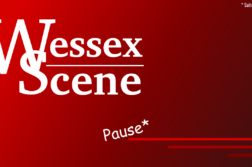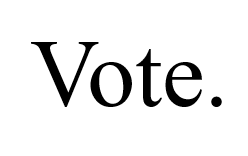In the wake of the suspected poisoning of the Russian opposition leader Alexei Navalny by the Russian government, Trump has defended the Putin regime. This is against the rest of the US’ allies who have condemned the attack, and its not the first time that this has occurred.
Mr Navalny fell ill during an internal flight in Russia, with it being believed that his tea was poisoned. He was first treated by Russian doctors who, according to the Kremlin, administered atropine which is used to treat the effects of nerve agents. They failed to find any evidence of poisoning, but when transferred to a Berlin hospital it was confirmed he had been poisoned with Novichok.
Novichok is a group of Soviet developed nerve agents, and in 2018 were used against Sergei and Yulia Skripal in Salisbury. Two other people were later exposed to the poison, of whom one died. In the aftermath of this attack the UK expelled 23 Russian intelligence officers, and the US another 60 in solidarity with the UK, amongst 25 other countries. The response this time has not been as strong.
NATO Secretary General Jens Stoltenberg addressed what they called an assassination attempt, saying that there was ‘proof beyond doubt that Mr. Navalny was poisoned… using Novichok‘. NATO condemned the attack and called for Russian cooperation with the Organisation for the Prohibition of Chemical Weapons (OPCW). The European Union made a similar condemnation of the attack, and Boris Johnson called for Russia to be held accountable to the international community.
However, the American response was complicated by President Trump. While the US National Security Council (NSC) called for an international response to the attack, President Trump claimed to have seen no proof, and then attempted to divert attention by questioning why people were talking about Russia instead of China.
Such a move is not untypical of the Trump administration.
- In June it was reported that Russia had offered bounties to Taliban militants for the killing of American and coalition troops. Trump claimed that his administration had never been briefed. The Associated Press reported that the White House had received briefings on the issue in early 2019, and then national security advisor John Bolton claimed to have briefed Trump himself in March 2019.
- In May, Trump threatened to pull the US out of the Open Skies Treaty over alleged Russian violations. The Treaty allows for member states to conduct aerial reconnaissance flights over each other’s territory. A US exit may cause Russia to leave as well, preventing other participants from carrying out such flights over Russia. This would allow Russia to conduct troop movements unnoticed, which is of concern to many eastern European states and Ukraine especially, as well as being of importance for arms control verification.
- In 2018 at a Helsinki summit, Trump said he believed Putin when he said that Russia did not meddle in the 2016 US elections. This is contrary to the findings of the US intelligence community and the Senate Select Committee on Intelligence which found that not only did Russia target the election, but was part of a ‘broader, sophisticated, and ongoing information warfare campaign’. The day after, Trump in a tweet said he ‘had a great meeting with NATO… I had an even better meeting with Vladimir Putin of Russia‘.
- In June 2018, Trump called for Russia to be invited back into the G8. Russia had been forced out in 2014 in response to their annexation of Crimea.
- In December 2017, in an interview with The New York Times, Trump claimed that the Democrats had instead colluded with the Russians. This claim would often be repeated.
- In July 2017, Trump tweeted that Russia was against him in the 2016 election.
- In May 2017, Trump defended his sharing of highly classified information to Russian Foreign Minister Sergei Lavrov and Ambassador Sergey Kislyak which was revealed by The Washington Post.
- In January 2017, Trump told The Wall Street Journal that he may lift sanctions against Russia.
- When communications were revealed between then Attorney General Jeff Sessions and Russian officials, Trump defended him as ‘an honest man‘ and blamed the Democrats for ‘saving face for… losing an election‘.
- In 2016 during the election campaign, Trump said he believed Crimea ‘would rather be with Russia‘.
However, Trump’s response to the poisoning of Mr. Navalny may have been influenced by his views of the NATO alliance, and Germany’s role within it. Evidence of Novichok was found and submitted by Germany. Germany has long faced criticism from Trump over their failure to meet NATO’s defence spending requirements. According to meeting notes leaked to The Telegraph, in the aftermath of the Skripal poisoning, Trump refused to take a leading role during a phone call with then PM Theresa May. President Trump was then quoted as having said ‘Angela [Merkel] is doing nothing. She is feeding the beast. I have done stuff and the EU has to do something. We are paying for their defence.‘ He continued, saying that the US would only do something if Germany did something as well. At the 2014 NATO summit it was agreed that all members would pay 2% of their GDP on defence. In 2019, Germany was only spending 1.36%. In early June of this year, Trump made the decision to remove 9500 troops from Germany, reducing the total to 25,000. Presently, only seven out of NATO’s thirty members meet or exceed the spending requirement.
The United States, and its position within NATO, make it crucial for European defence. Trump’s questionable relationship with both Vladimir Putin and NATO thus put not only the alliance at risk, but Europe as a whole. Even Trump’s loyalty to his own is under question recently, with him reportedly having called America’s war dead ‘losers‘ and ‘suckers‘, on top of the previous mentioned issue of bounties being paid for the killing of American troops.
President Trump’s claim that his administration has been the toughest on Russia is undoubtedly false. His undermining of his own intelligence community, and of his most important international allies, only strengthens Russia. Feeding a divide and conquer mentality that has long been waged by Russia within western politics, this is a war that we are losing. Eastern Europe especially needs the unity of the west and the NATO alliance. The annexation of Crimea and the war in Donbass is the perfect of example of what may happen, and many fear that this may only repeat itself within Belarus.



